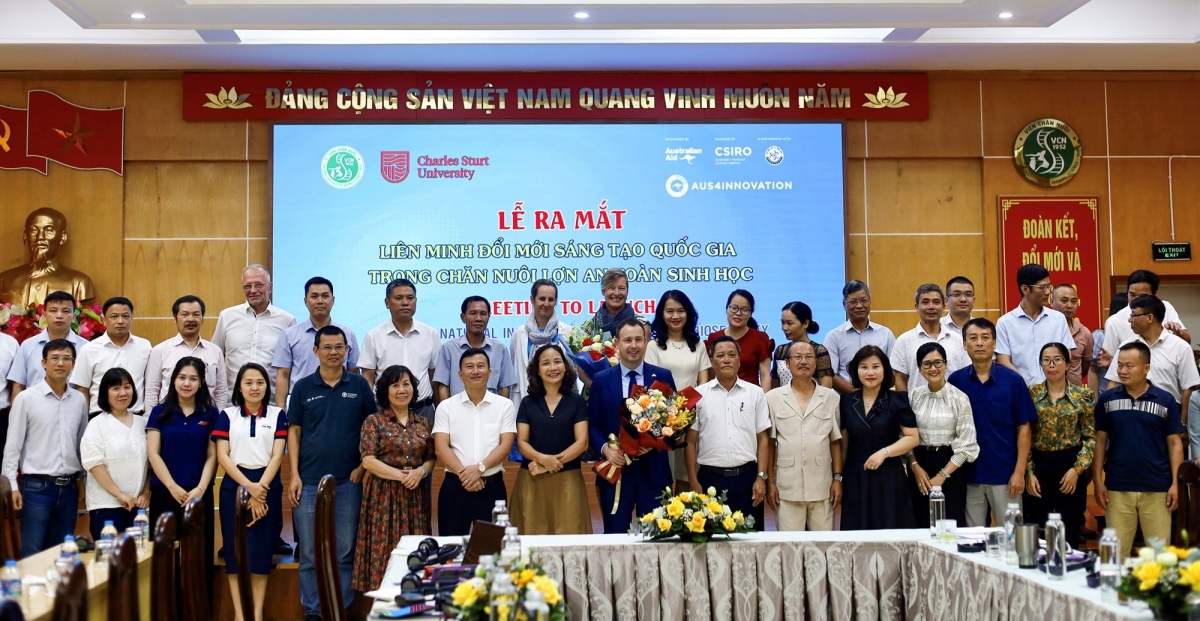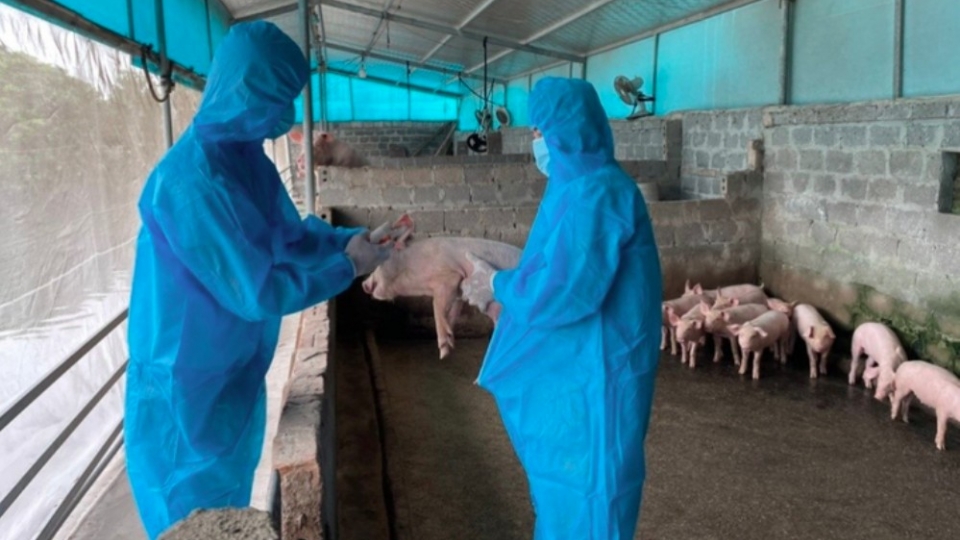Vietnam National Innovation Alliance for Pig Biosecurity strives to combat ASF
The Vietnam National Innovation Alliance for Pig Biosecurity is taking decisive steps to address the pressing challenges posed by African Swine Fever (ASF).

With outbreaks continuing to devastate pig farming across Vietnam, the Alliance hosted a consultation workshop to present findings from a pivotal study, aiming at strengthening biosecurity measures at the household level.
Facilitated by the Aus4Innovation programme, the study was conducted through a collaboration between researchers from Vietnam’s National Institute of Animal Science (NIAS), CSIRO - Australia’s National Science Agency, and Charles Sturt University (CSU). Focusing on three provinces of Gia Lai, Dak Lak, and Quang Ngai, the study has identified critical practices of small holder pig producers that can contribute to outbreaks of diseases like ASF, and provided practical solutions accordingly, such as water quality, quarantine measures, and hygiene practices.
The workshop offered a unique opportunity for participants, including researchers, associations, and farmers, to evaluate the study findings and collaboratively identify actionable priorities for improving biosecurity. Practical, cost-effective measures such as strict quarantine protocols, using footbaths at the entry of pig pens, and managing visitor and worker entry of pig pens were also identified and discussed. These efforts will culminate in customised guidelines that address local challenges in combating ASF and other biosecurity threats, advancing the resilience of Vietnam's pig farming sector.
Dr. Kim Wimbush, CSIRO Counsellor and Director of the Aus4Innovation programme, underlined the Alliance’s role in fostering solutions through partnership and innovation.
"The Vietnam National Innovation Alliance for Pig Biosecurity exemplifies how collaboration, research, and innovation can help tackle some of the most pressing challenges in agriculture. By co-creating science-backed solutions with farmers, policymakers, and researchers, we are laying the groundwork for resilient and sustainable pig farming practices across Vietnam," he said.
Dr. Pham Cong Thieu, General Director of the National Institute of Animal Sciences, highlighted the importance of collective action, saying that the alliance represents a critical step forward in addressing the challenges posed by ASF and other biosecurity risks.
"With 648,000 pigs destroyed this year alone, the urgency to act has never been greater. This collaboration brings researchers and farmers together to co-identify challenges and co-create solutions that will safeguard Vietnam's pig farming sector long into the future," Thieu noted.
The persistent challenge of ASF, exacerbated by more complex viral strains, has led to significant losses for farmers and disrupted supply chains, affecting consumers across the country. According to the Ministry of Agriculture and Environment (MAE), 1,780 outbreaks were reported in all 34 provinces and cities nationwide this year.



